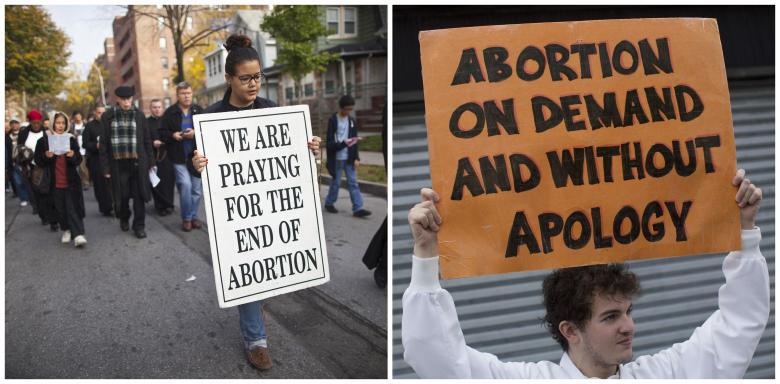
New York will allow late-term abortions for women whose pregnancies endanger their health, a move that brings the state into federal compliance and ends decades of confusion faced by patients and providers of the procedure, state officials said.
State Attorney General Eric Schneiderman issued an opinion publicly on Thursday to clarify that New Yorkers have all the protections afforded to women in the United States under the Supreme Court ruling in Roe v. Wade and are not beholden to the state's more-restrictive abortion law.
"Today's opinion eliminates any ambiguity about the consistency of our state's law with these federal constitutional rights and, as a result, removes an obstacle some New York women may encounter when trying to make their own reproductive health choices," Schneiderman said in a statement.
The state will officially allow late-term abortions if the pregnant woman's health is at risk or if the fetus is "nonviable," according to the opinion.
Existing New York law says abortion is a crime unless performed "under a reasonable belief that such is necessary to preserve (the pregnant woman's) life," or within the first 24 weeks of pregnancy.
The new opinion also assures reproductive health care providers operating in New York, such as Planned Parenthood, that "they may provide constitutionally protected reproductive health care services to women without fear of being complicit in a criminal act."
The opinion does not change the state's penal code. It clarifies the state's interpretation of federal law and that the law overrides state rule.
New York, which was of the first states to legalize access to abortions, last modified its laws on the procedure in 1970, about three years before the Roe v. Wade decision.
Civil rights and reproductive health care advocates applauded Schneiderman's move.
"New York's abortion law, once ahead of its time, for too long has been woefully out of date, causing confusion for providers and leaving women without the full extent of their constitutionally-protected right to access abortion," said Andrea Miller, President of the National Institute for Reproductive Health.
"Today's opinion by the attorney general is critical confirmation that women have a right to adequate medical care and reproductive choice in New York state," said Donna Lieberman, executive director of the New York Civil Liberties Union.
The organization said it plans to release a report next year that includes a collection of stories by women who were affected by New York's unconstitutional abortion restriction.
Source: Reuters
 FR
FR EN
EN AR
AR








